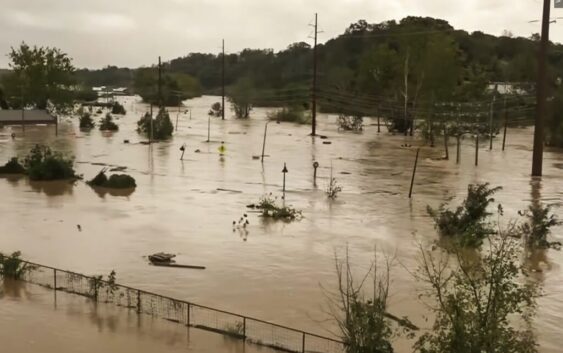- Wildfire in New Jersey Pine Barrens expected to grow before it’s contained, officials say
- Storm damage forces recovery efforts in Lancaster, Chester counties
- Evacuation orders lifted as fast-moving New Jersey wildfire burns
- Heartbreak for NC resident as wildfire reduces lifetime home to ashes
- ‘It’s only going to get worse’: Wildfire risk grows in western North Carolina
North Carolina radio station was a critical lifeline after Hurricane Helene. Then it became the voice of recovery.

CBS News — When Hurricane Helene hit western North Carolina last September, a local radio station played a critical role in keeping residents informed. Their work didn’t stop there.
In the last six months, WWNC’s Mark Starling and Tank Spencer have become the voices of recovery, amplifying the messages of groups such as Valley Strong Disaster Relief, a nonprofit run by Jason Ward and his partners.
Before Helene, a Wilmington amphitheater was a crowd favorite for music. Now, it’s a place where folks can stock up on essentials like food and diapers, Ward said. But even the most well-organized relief efforts are only as effective as the number of people who know about them.
That’s where Starling and Spencer come in, taking to the airwaves to connect the relief with the people who need it most.
“You don’t really notice until times of disaster what your community is really made of,” Spencer said. “They’re gonna make sure that everybody in that community, that nobody wants for anything.”
In the aftermath of the devastating storm, the AM radio host and producer manned the phones around the clock for days. With cell towers down and communications iffy at best, they became a way for people to ask for help.
“The access to the information saved lives,” Starling said. “The only thing that was left standing was AM and FM radio, and I think there’s been a rediscovery of that.”
Six months later, they’re still at it.
“You guys are really the only voices we had coming across the airwaves. There’s good that comes from the bad,” one caller said.
Like most everyone in western North Carolina, the last six months have been an intense reminder that no one gets through this alone.